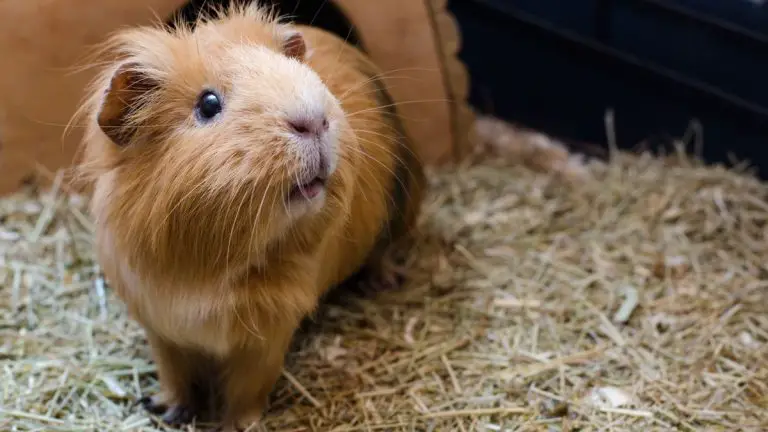5 Foolproof Techniques to Keep Your Ferrets Happy
To keep your ferrets happy, provide them with a stimulating environment, regular playtime, a balanced diet, proper grooming, and lots of love and attention. It’s important to keep ferrets entertained and engaged to prevent boredom and promote their overall well-being.
By incorporating these five tips into your ferret’s daily routine, you can ensure that they lead a happy and fulfilling life as your beloved pet. So, let’s dive in and explore these strategies in more detail. Ferrets make delightful and energetic pets, bringing boundless joy and laughter into our lives.
However, we must strive to ensure their happiness and well-being in return. Keeping ferrets content requires more than just feeding and housing them; it necessitates understanding their unique needs and providing them with a fulfilling environment. We will outline five essential ways to keep your ferrets happy, helping you build a strong bond and foster a harmonious relationship with these adorable creatures. From providing mental and physical stimulation to addressing their biological requirements, these strategies will help you take care of your ferret’s happiness from nose to tail. So, let’s get started and dive into the world of ferret care!

Creating A Stimulating Environment
Keeping your ferrets happy is crucial for their well-being. Creating a stimulating environment for them involves providing plenty of interactive toys, setting up a play area, giving them opportunities to explore, offering social interaction, and ensuring a comfortable living space.
Ferrets are active and curious creatures that require mental and physical stimulation to stay happy and healthy. By creating a stimulating environment for your furry friends, you can provide them with opportunities for play, exploration, and mental engagement. Here are five ways to ensure your ferrets have a stimulating environment:
Providing A Variety Of Toys To Keep Them Engaged
- Interactive toys: Offer toys that require interaction, such as puzzle toys, treat-dispensing toys, or toys with hidden compartments. These toys provide mental stimulation and help keep the ferrets engaged.
- Chew toys: Provide a variety of chew toys to satisfy your ferret’s natural chewing instinct. Toys made of rubber or wood are great options. Just ensure they are safe and durable to withstand their sharp teeth.
Setting Up A Safe And Spacious Ferret Cage
- Sufficient space for play and exploration: Choose a spacious cage that allows your ferret to move around freely. A large cage with multiple levels provides ample room for play, climbing, and hopping.
- Multiple levels and hideouts: Include different levels within the cage, such as ramps or shelves, to encourage climbing and exploration. Ensure there are cozy hideouts to provide a sense of security and privacy.
Designing An Enriching Play Area Outside The Cage
- Tunnels and obstacle courses: Set up a dedicated play area outside the cage using tunnels and obstacle courses. These allow your ferrets to engage in physically stimulating activities and explore a new environment.
- Toys and hiding spots: Scatter toys and create hiding spots in the play area. This will encourage your ferrets to use their natural instincts for play and hunting.
By following these five tips, you can create a stimulating environment that keeps your ferrets happy, physically active, mentally engaged, and prevents boredom. Remember to regularly rotate the toys and change the layout of their environment to provide continuous novelty and keep their curious minds entertained.

Maintaining A Balanced Diet
Maintain a balanced diet to keep your ferrets happy with these essential tips: provide a variety of foods, include high-quality protein sources, offer fresh fruits and vegetables, limit treats and supplements, and ensure access to clean water at all times.
Your ferret’s well-being is in your hands!
Understanding The Nutritional Needs Of Ferrets
Ferrets have specific dietary requirements to ensure their overall health and happiness. Here are some key points to keep in mind when it comes to their nutrition:
- Ferrets are obligate carnivores: This means that their diet should mainly consist of meat-based products. They have a short digestive tract, and their bodies are designed to metabolize animal proteins efficiently.
- High protein content: Ferrets require a diet with a high protein content, typically ranging from 30% to 40%. This protein should come from animal sources such as chicken, turkey, or lamb.
- Limited carbohydrate intake: Ferrets have a limited ability to digest and metabolize carbohydrates. Therefore, their diet should be low in carbohydrates, avoiding fillers like grains, corn, and soy.
- Essential fatty acids: Omega-3 and omega-6 fatty acids are crucial for maintaining a healthy coat and supporting overall well-being. Look for ferret-specific foods that contain these essential fatty acids.
High-Quality Ferret-Specific Food
Choosing a high-quality, ferret-specific food is essential for meeting your ferret’s nutritional needs. Here are some factors to consider:
- Look for complete and balanced formulas: Ensure that the food you choose meets the nutritional requirements specific to ferrets. Check the packaging for statements like “formulated for ferrets” or “complete and balanced.”
- Avoid cat or dog food: While cat and dog foods may seem similar, they do not fulfill a ferret’s unique nutritional needs. These foods may lack the high protein content and specific nutrients necessary for a ferret’s health.
- Read ingredient labels: Always check the ingredient list to ensure the food contains real meat as the primary ingredient and minimal fillers or artificial additives.
Supplements For Essential Vitamins And Minerals
In addition to a high-quality diet, supplements can help ensure your ferret receives essential vitamins and minerals. Here’s what you need to know:
- Consult your veterinarian: Before introducing any supplements, consult your veterinarian to determine which ones are necessary for your ferret’s individual needs.
- Ferret-specific supplements: Look for supplements formulated specifically for ferrets. These may include vitamins like A, D, and E, as well as essential minerals like calcium and phosphorus.
- Follow dosage guidelines: Adhere to the recommended dosage guidelines provided by your veterinarian or the supplement manufacturer. Over-supplementing can lead to adverse health effects.
Feeding Schedule And Portion Control
Establishing a feeding schedule and practicing portion control is crucial for maintaining your ferret’s health. Consider the following:
- Stick to a regular schedule: Ferrets thrive on routine. Establish a consistent feeding schedule, offering meals at the same times each day.
- Divide meals into smaller portions: Rather than providing large meals, divide your ferret’s daily food intake into several smaller meals. This mimics their natural feeding pattern and prevents overeating.
Dividing Meals Into Regular Intervals
To keep your ferret satisfied and prevent extended periods between meals, divide their daily food intake into regular intervals:
- Offer multiple meals a day: Ferrets have a fast metabolism and benefit from multiple small meals throughout the day. Aim for at least three to four meals spaced evenly apart.
- Avoid long gaps: Ferrets should not go without food for more than four to six hours. If unavoidable, consider providing small, nutritious snacks in between meals.
Avoiding Overfeeding Or Underfeeding
Maintaining the right balance when it comes to feeding your ferret is essential. Follow these tips to avoid overfeeding or underfeeding:
- Monitor your ferret’s weight: Regularly weigh your ferret to ensure they maintain a healthy weight. Too much or too little weight can indicate an issue with their diet.
- Adjust portion sizes as needed: Monitor your ferret’s body condition and adjust portion sizes accordingly. Consult with your veterinarian to determine the appropriate amount of food to feed your ferret.
Fresh Water And Hydration
Apart from a balanced diet, providing fresh water to your ferret is crucial for their hydration and overall well-being. Here’s what you need to know:
- Always provide clean water: Ensure that your ferret has access to fresh, clean water at all times. Change the water daily to prevent contamination.
- Encourage water intake: Some ferrets may not drink enough water on their own. You can encourage hydration by using a water bottle or fountain designed specifically for ferrets.
- Monitor hydration levels: Check your ferret’s water intake regularly to ensure they are staying properly hydrated. Dehydration can lead to health issues, so it’s crucial to keep an eye on this aspect of their care.
By understanding the nutritional needs of your ferret, providing high-quality food, supplements when needed, and maintaining a feeding schedule, you can ensure their health and happiness for years to come. Remember to consult with your veterinarian for personalized advice tailored to your ferret’s specific requirements.
Establishing A Routine For Exercise And Socialization
Establishing a routine for exercise and socialization is vital for keeping your ferrets happy. By incorporating activities like regular playtime, interactive toys, and supervised outdoor adventures, you can ensure a healthy and engaging lifestyle for your furry friends.
Ferrets are highly active and social creatures, and it is crucial to provide them with enough exercise and social interaction to keep them happy and healthy. Establishing a routine for exercise and socialization will not only keep your ferrets physically fit but also mentally stimulated.
Here are five ways to ensure your furry friends get the exercise and socialization they need:
Daily Playtime And Exercise Sessions:
- Set aside dedicated time each day for play and exercise sessions with your ferrets.
- Engage in activities that promote physical exertion, such as chasing and rolling balls, using tunnels, and participating in obstacle courses.
- Encourage your ferrets to climb, jump, and explore their environment, providing them with plenty of opportunities to burn off their energy.
Interactive Play With Their Favorite Toys:
- Identify your ferrets’ favorite toys and use them to engage in interactive play.
- Use toys that can be manipulated and chewed on, such as puzzle toys or toys with hidden treats.
- Play games that involve chasing and pouncing, helping to simulate their hunting instincts and keeping them entertained.
Free Roaming In A Safe And Supervised Area:
- Allow your ferrets to roam freely in a safe and supervised area of your home, such as a ferret-proofed room or playpen.
- Ensure the environment is escape-proof and free from any potential dangers, such as small objects they could swallow or electrical cords they could chew on.
- Supervise their playtime to prevent any mishaps and provide immediate assistance if needed.
Socializing Ferrets With Toys And Humans:
- Engage in interactive play with your ferrets, using toys or your hands to interact and playfully engage with them.
- Encourage gentle interactions by scratching behind their ears or under their chin, mimicking the social grooming they would receive from other ferrets.
- Rotate different types of toys to keep their interest piqued and provide them with mental stimulation and social engagement.
Encouraging Interaction With Other Ferrets:
- If you have multiple ferrets, ensure they have opportunities for social interaction.
- Encourage friendly play and monitor their interactions to ensure they are getting along.
- Provide separate sleeping areas, litter boxes, and plenty of resources to prevent any potential conflicts.
Building Trust And Bonding With Regular Handling:
- Regularly handle your ferrets to build trust and strengthen your bond with them.
- Hold them gently, allowing them to feel secure in your hands, and avoid any sudden movements or loud noises that could startle them.
- Spend time petting and stroking them, using a soothing voice to reinforce positive associations with human contact.
Mental Stimulation Through Training Activities:
- Engage your ferrets in training activities to provide mental stimulation and promote bonding.
- Teach them simple tricks and commands, such as “sit” or “fetch,” using positive reinforcement techniques like treats or praise.
- Make training sessions short and enjoyable, incorporating playtime and treats to make it a fun and rewarding experience.
Teaching Simple Tricks And Commands:
- Start with basic commands like “come” and “stay” and gradually progress to more complex tricks.
- Use treats as rewards when your ferrets successfully perform the desired behavior.
- Keep training sessions short and frequent, using positive reinforcement to motivate them.
Using Puzzle Toys For Problem-Solving Skills:
- Provide your ferrets with puzzle toys that require problem-solving skills to access hidden treats.
- These toys stimulate their natural curiosity and intelligence, offering mental challenges that keep them engaged and entertained.
- Rotate different puzzle toys to prevent boredom and keep their minds active.
By establishing a routine for exercise and socialization, you can ensure that your ferrets lead happy and fulfilling lives. Remember to always supervise their playtime, provide a variety of toys and activities, and offer plenty of love and attention to keep them healthy and content.
Regular Check-Ups And Health Maintenance
Regular check-ups and health maintenance are essential for keeping your ferrets happy. By providing proper veterinary care, dental hygiene, proper diet, and mental stimulation, you can ensure your furry friends live a long and joyful life.
A key aspect of keeping your ferrets happy is ensuring they receive regular check-ups and proper health maintenance. This involves scheduling veterinary visits, regular examinations and vaccinations, addressing any health concerns promptly, and maintaining a clean and hygienic environment. Additionally, grooming practices and monitoring signs of stress and illness play a crucial role in ensuring your ferrets’ well-being.
Scheduling Veterinary Visits:
- Make sure to schedule regular veterinary visits for your ferrets to ensure their overall health and well-being.
- Visit a reputable veterinarian who specializes in exotic animals or has experience with ferrets.
- Follow the recommended frequency for check-ups, which is typically once every six to twelve months.
Regular Examinations And Vaccinations:
- Regular examinations by a veterinarian can help detect any underlying health issues early on.
- Vaccinations are important to protect your ferrets against serious diseases such as distemper and rabies.
- Consult with your veterinarian to establish a vaccination schedule that meets your ferrets’ specific needs.
Addressing Any Health Concerns Promptly:
- If you notice any signs of illness or unusual behavior in your ferrets, address them promptly.
- Monitor their eating habits, litter box use, energy levels, and demeanor for any changes that may indicate a health concern.
- Contact your veterinarian immediately if you notice any symptoms or abnormalities.
Maintaining A Clean And Hygienic Environment:
- Cleanliness is crucial to prevent the spread of diseases and maintain a healthy environment for your ferrets.
- Regularly clean their living area, including their cage, bedding, toys, and litter box.
- Use safe, ferret-friendly cleaning products and replace any worn-out or damaged items.
Regular Cage Cleanings To Prevent Odors And Bacteria:
- Cleaning your ferrets’ cage regularly helps prevent the buildup of odors and harmful bacteria.
- Remove soiled bedding, clean food and water dishes, and sanitize the cage surfaces.
- Create a consistent cleaning routine to ensure a fresh and hygienic living space for your ferrets.
Grooming Practices For Healthy Fur And Nails:
- Regular grooming is essential for maintaining your ferrets’ healthy fur and nails.
- Brush their fur gently to remove loose hair, prevent matting, and promote good circulation.
- Trim their nails carefully to prevent overgrowth and discomfort.
Monitoring Signs Of Stress And Illness:
- Keep a watchful eye for signs of stress and illness in your ferrets, as they may not always show obvious symptoms.
- Look for changes in appetite, weight, behavior, fur quality, and bathroom habits.
- If you notice anything concerning, consult your veterinarian for guidance.
Recognizing Behavioral Changes And Abnormalities:
- Pay attention to your ferrets’ behavior and be aware of any changes or abnormalities.
- Changes in interactions, playfulness, aggression, and sleep patterns may indicate an underlying health issue.
- Document and discuss any significant changes with your veterinarian.
Providing Prompt Medical Attention When Needed:
- If your ferrets require medical attention, ensure they receive prompt and appropriate care.
- Follow your veterinarian’s instructions for medication, treatments, and follow-up appointments.
- Advocate for your ferrets’ health by seeking second opinions or consulting specialists when necessary.
By prioritizing regular check-ups, vaccinations, and health maintenance, you can effectively promote the well-being and happiness of your ferrets. Remember to maintain a clean and hygienic environment, monitor for signs of stress and illness, and promptly address any health concerns that may arise.
Creating A Loving And Nurturing Bond
Discover 5 effective ways to keep your ferrets happy and create a strong, loving bond with them. Implement these strategies to ensure their well-being and nurture a thriving relationship with your furry companions.
Spending Quality Time with Your Ferret:
- Set aside dedicated time each day to interact with your ferret.
- Engage in activities that your ferret enjoys, such as playing or exploring together.
- Talk to your ferret in a soft and soothing voice to establish a connection.
Gentle Handling and Cuddling Sessions:
- Handle your ferret with care, using slow, gentle movements.
- Allow your ferret to come to you for cuddling sessions, and never force them into your arms.
- Stroke their fur softly and provide a comfortable and secure environment.
Engaging in Interactive Play and Petting:
- Use interactive toys, such as tunnels or puzzle boxes, to engage your ferret in playtime.
- Provide mental stimulation by hiding treats or toys for them to find.
- Regularly pet and groom your ferret to create a sense of bonding.
Understanding and Respecting Their Individual Personalities:
- Each ferret has its own unique personality traits and preferences.
- Pay attention to your ferret’s body language and cues to understand their moods and needs.
- Respect their boundaries and avoid overwhelming them with too much interaction.
Recognizing Their Likes and Dislikes:
- Observe your ferret’s reactions to different toys, treats, and activities.
- Note their favorite hiding spots, preferred type of play, and the treats they respond positively to.
- Avoid activities or situations that cause your ferret discomfort or fear.
Tailoring Activities to Suit Their Preferences:
- Adapt your playtime routine based on your ferret’s interests and energy levels.
- Experiment with different toys and games to find what they enjoy the most.
- Be flexible and open to changing activities to keep the bond strong.
Establishing Trust and Mutual Respect:
- Be patient and understanding as your ferret adjusts to their new environment.
- Gain your ferret’s trust by consistently providing care, love, and attention.
- Treat your ferret with respect and avoid any actions that may cause fear or anxiety.
Reward-Based Training for Positive Reinforcement:
- Use positive reinforcement techniques, such as treats and praise, to train your ferret.
- Reward desired behaviors, such as using a litter box or responding to their name.
- Avoid using punishment or force, as it can damage the bond and create fear.
Avoiding Harsh Punishments or Rough Handling:
- Never yell at or physically punish your ferret as it can cause fear and harm the relationship.
- Handle your ferret gently and avoid any rough or aggressive movements.
- Focus on positive interactions and reinforce good behavior with rewards.
Creating a loving and nurturing bond with your ferret is crucial for their happiness and well-being. By spending quality time together, engaging in interactive play and petting sessions, respecting their individual personalities, and tailoring activities to their preferences, you can strengthen your bond.
Understanding and recognizing their likes and dislikes, while establishing trust and mutual respect, will further enhance your connection. Remember to use reward-based training for positive reinforcement and avoid harsh punishments or rough handling. With these practices in place, you can ensure a harmonious and joyful relationship with your furry friend.
Frequently Asked Questions Of 5 Ways To Keep Your Ferrets Happy
How Can I Make My Ferret Happy?
To make your ferret happy, provide them with plenty of playtime, engage in interactive toys, offer a balanced diet, and create a comfortable living environment.
How Do I Keep My Ferret From Getting Bored?
To prevent boredom in your ferret, engage in interactive play regularly. Provide toys and tunnels for exploration, and rotate them to keep it interesting.
What Do Ferrets Love The Most?
Ferrets love playing and exploring the most, along with cuddling and interacting with their owners.
What Keeps Ferrets Entertained?
Ferrets stay entertained with toys, tunnels, puzzles, and interactive playtime with their owners.
Conclusion
To ensure the happiness and well-being of your beloved ferrets, it is crucial to implement these five important strategies. Start by providing them with a spacious and enriching living environment that includes plenty of exercise opportunities. Regular grooming is essential for their health and comfort, so make sure to groom them regularly and maintain their hygiene.
A balanced and nutritious diet is paramount for their overall health, so opt for high-quality ferret-specific foods and avoid feeding them inappropriate human foods. Additionally, socialization and mental stimulation are key factors in keeping your ferrets happy, so spend quality time with them and provide toys and activities that engage their curious nature.
Lastly, regular veterinary check-ups are essential to monitor their health and catch any potential issues early on. By following these guidelines, you can ensure that your ferrets live a happy and fulfilling life.







